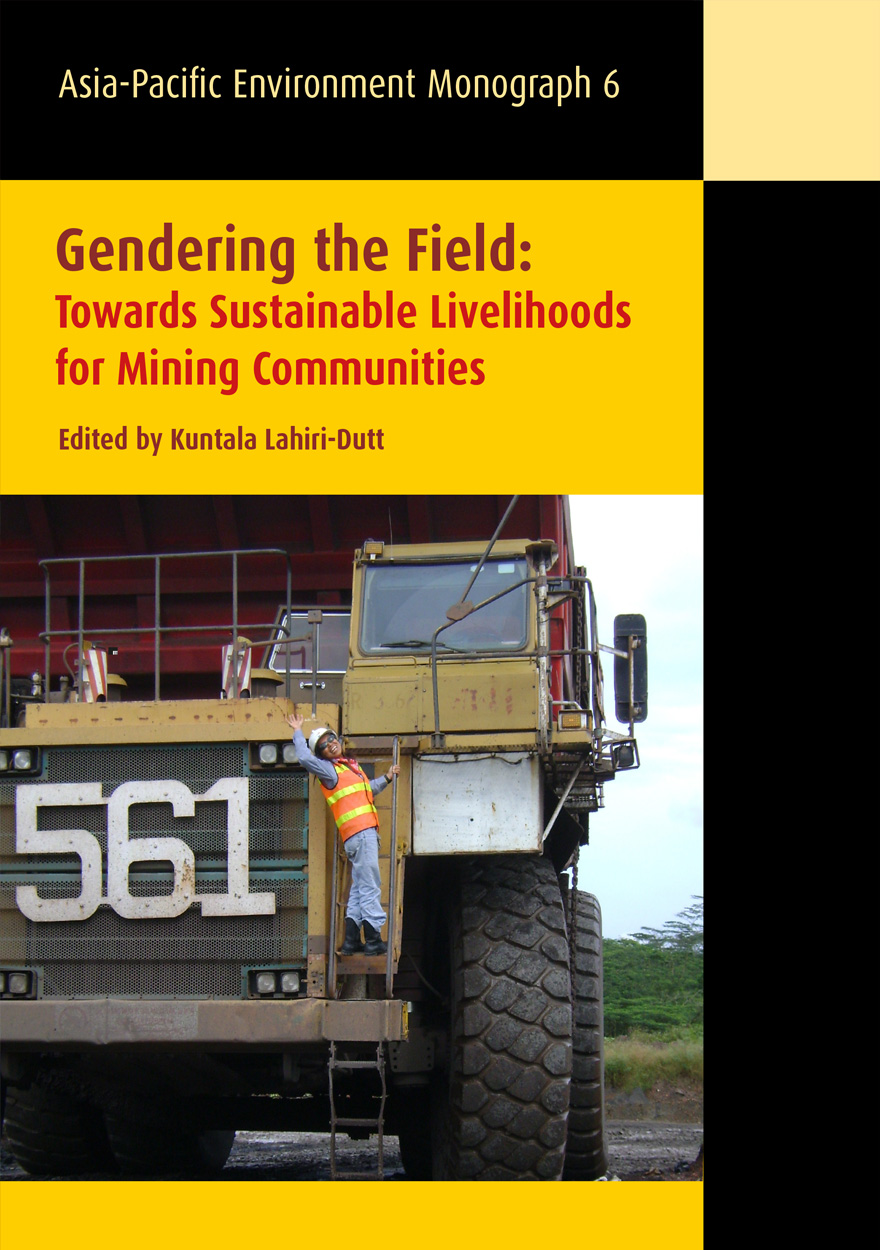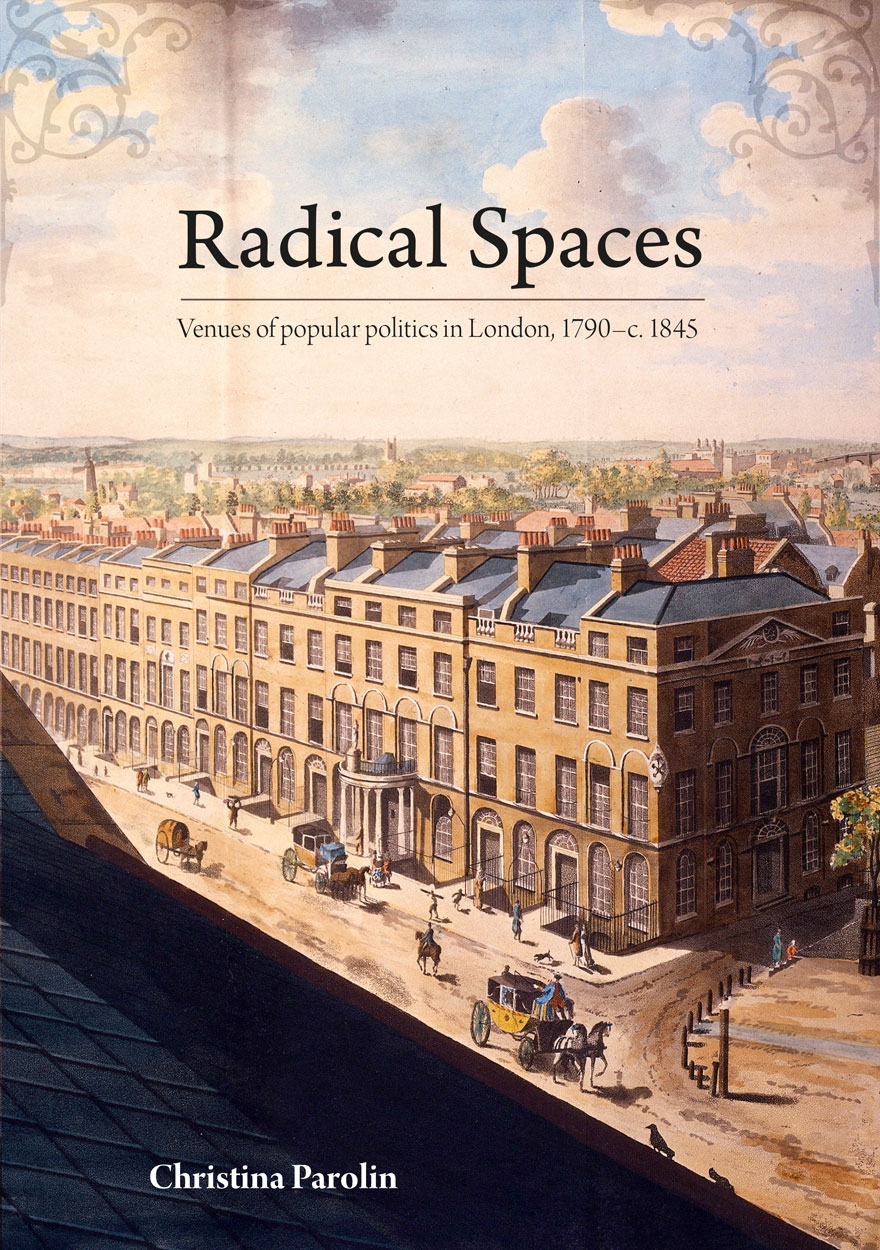Search titles
Displaying results 41 to 50 of 54.

East Asia Forum Quarterly: Volume 4, Number 3, 2012 »
Publication date: October 2012
East Asia Forum Quarterly grew out of East Asia Forum (EAF) online, which has developed a reputation for providing a platform for the best in Asian analysis, research and policy comment on the Asia Pacific region in world affairs. EAFQ aims to provide a further window onto research in the leading research institutes in Asia and to provide expert comment on current developments within the region. The East Asia Forum Quarterly, like East Asia Forum online, is an initiative of the East Asia Forum (EAF) and its host organisation, the East Asian Bureau of Economic Research (EABER) in the Crawford School of Economics and Government in the College of Asia & the Pacific at The Australian National University.
Download for free
Not available for purchase

Past Law, Present Histories »
Edited by: Diane Kirkby
Publication date: September 2012
This collection brings methods and questions from humanities, law and social sciences disciplines to examine different instances of lawmaking. Contributors explore the problematic of past law in present historical analysis across indigenous Australia and New Zealand, from post-Franco Spain to current international law and maritime regulation, from settler colonial humanitarian debates to efforts to end cruelty to children and animals. They highlight problems both national and international in their implication. From different disciplines and theoretical positions, they illustrate the diverse and complex study of law’s history.

Engendering Violence in Papua New Guinea »
Edited by: Margaret Jolly, Christine Stewart, Carolyn Brewer
Publication date: July 2012
This collection builds on previous works on gender violence in the Pacific, but goes beyond some previous approaches to ‘domestic violence’ or ‘violence against women’ in analysing the dynamic processes of ‘engendering’ violence in PNG. ‘Engendering’ refers not just to the sex of individual actors, but to gender as a crucial relation in collective life and the massive social transformations ongoing in PNG: conversion to Christianity, the development of extractive industries, the implanting of introduced models of justice and the law and the spread of HIV. Hence the collection examines issues of ‘troubled masculinities’ as much as ‘battered women’ and tries to move beyond the black and white binaries of blaming either tradition or modernity as the primary cause of gender violence. It relates original scholarly research in the villages and towns of PNG to questions of policy and practice and reveals the complexities and contestations in the local translation of concepts of human rights. It will interest undergraduate and graduate students in gender studies and Pacific studies and those working on the policy and practice of combating gender violence in PNG and elsewhere.

Reaching for Health »
The Australian women’s health movement and public policy
Authored by: Gwendolyn Gray Jamieson
Publication date: January 2012
The women’s health movement shocked and scandalised when it burst into Australian politics in the early 1970s. It cast the light of day onto taboo subjects such as sexual assault, abortion and domestic violence, provoking outrage and condemnation. Some of the services women created for themselves were subjected to police raids; sex education material was branded ‘indecent’. Moreover, women dared to criticise revered institutions, such as the medical system. Yet for all its perceived radicalism, the movement was part of a much broader and relatively conventional international health reform push, which included the ‘new’ public health movement, the community health centre movement and, in Australia, the Aboriginal health movement, all of which were critical of the way medical systems had been organised during the 20th century. The women who joined the movement came from diverse backgrounds and included immigrant and refugee women, Aboriginal women and Anglo women. Initially, groups worked separately for the most part but as time went on, they found ways to cooperate and collaborate. This book presents an account of the ideas, the diverse and shared efforts and the enduring hard work of women’s health activists, drawn together in one volume for the first time. This relentless activism gradually had an impact on public policy and slowly brought forth major attitudinal changes. The book also identifies the opportunities for health reform that were created along the way, opportunities which deserve to be more fully embraced.

Gendering the Field »
Towards Sustainable Livelihoods for Mining Communities
Edited by: Kuntala Lahiri-Dutt
Publication date: March 2011
The chapters in this book offer concrete examples from all over the world to show how community livelihoods in mineral-rich tracts can be more sustainable by fully integrating gender concerns into all aspects of the relationship between mining practices and mine affected communities. By looking at the mining industry and the mine-affected communities through a gender lens, the authors indicate a variety of practical strategies to mitigate the impacts of mining on women’s livelihoods without undermining women’s voice and status within the mine-affected communities.
The term ‘field’ in the title of this volume is not restricted to the open-cut pits of large scale mining operations which are male-dominated workplaces, or with mining as a masculine, capital-intensive industry, but also connotes the wider range of mineral extractive practices which are carried out informally by women and men of artisanal communities at much smaller geographical scales throughout the mineral-rich tracts of poorer countries.

Civic Insecurity »
Law, Order and HIV in Papua New Guinea
Edited by: Vicki Luker, Sinclair Dinnen
Publication date: December 2010
Papua New Guinea has a complex ‘law and order’ problem and an entrenched epidemic of HIV. This book explores their interaction. It also probes their joint challenges and opportunities—most fundamentally for civic security, a condition that could offer some immunity to both.
This book is a valuable and timely contribution to a limited but growing body of scholarship in the social and structural contexts of HIV epidemiology in Papua New Guinea. The volume offers a unique collection of interdisciplinary insights on the connections between law and order and the HIV epidemic and is presented in a manner accessible to a wide audience, scholars and lay people alike… Significantly, this is the first volume to critically examine the complex and inexorable links between HIV, gender, violence, and security within a theoretical framework that illuminates the challenges of the epidemic for PNG’s future cohesion and stability as a young nation…The importance of this courageous book cannot be overstated. While it communicates an urgent and potent message about the need for immediate action … it offers insightful reflections on the processes and possibilities of social transformation that undoubtedly will have enduring scholarly and practical value.
— Dr Katherine Lepani, Social Foundations of Medicine, The Australian National University.

Radical Spaces »
Venues of popular politics in London, 1790–c. 1845
Authored by: Christina Parolin
Publication date: December 2010
Radical Spaces explores the rise of popular radicalism in London between 1790 and 1845 through key sites of radical assembly: the prison, the tavern and the radical theatre. Access to spaces in which to meet, agitate and debate provided those excluded from the formal arenas of the political nation–the great majority of the population–a crucial voice in the public sphere. Radical Spaces utilises both textual and visual public records, private correspondence and the secret service reports from the files of the Home Office to shed new light on the rise of plebeian radicalism in the metropolis. It brings the gendered nature of such sites to the fore, finding women where none were thought to gather, and reveals that despite the diversity in these spaces, there existed a dynamic and symbiotic relationship between radical culture and the sites in which it operated. These venues were both shaped by and helped to shape the political identity of a generation of radical men and women who envisioned a new social and political order for Britain.

Sex Discrimination in Uncertain Times »
Edited by: Margaret Thornton
Publication date: September 2010
This collection of essays arose from a conference held to mark the silver anniversary of the Australian Sex Discrimination Act (1984). The collection has two aims: first; to honour the contributions of both the spirited individuals who valiantly fought for the enactment of the legislation against the odds, and those who championed the new law once it was passed; secondly, to present a stock-take of the Act within the changed socio-political environment of the 21st century.
The contributors present clear-eyed appraisals of the legislation, in addition to considering new forms of legal regulation, such as Equality Act, and the significance of a Human Rights Act. The introduction of a proactive model, which would impose positive duties on organisations, is explored as an alternative to the existing individual complaint-based model of legislation. The contributors also pay attention to the international human rights framework, particularly the Convention on the Elimination of all Forms of Discrimination against Women and the UN Declaration on the Rights of Indigenous People. The essays are illuminated by recourse to a rich vein of historical and contemporary literature. Regard is also paid to the comparative experience of other jurisdictions, particularly the UK and Canada.

Fiducial Governance »
An Australian republic for the new millennium
Authored by: John Power
Publication date: July 2010
Fiducial Governance: An Australian republic for the new millennium represents an attempt to grapple with the challenges of designing governance regimes suited to the new millennium. Power’s monograph asserts the need for the reform of Australian governance and charts Australia’s fitful progress towards a republican future. Along the way he sketches a framework for constitutional reform, mindful of the strengths and weaknesses of the current system of government and the contest of ideas about the role and configuration of Australian Heads of State. Long a frustrated Australian republican, Power contends that the republican log jam is due in significant part to a lack of respect shown by the republican policy community to the contribution long made to good governance by monarchical heads of state. This monograph seeks to draw lessons from this experience, so as to make the republican venture one of substance for the Australian public. In so doing, Power draws on a range of republican, indigenous and feminist writings in order to develop a new framework of ‘fiducial governance’ aimed at enhancing the trustworthiness and integrity of our institutions of governance, thereby paving the way for the replacement of the monarch by a directly elected head of state. This is an erudite and thoughtful book that will be of interest to those with an interest in systems of governance and to constitutional scholars, whether they be republicans or monarchists.

Food and Agriculture in Papua New Guinea »
Edited by: R. Michael Bourke, Tracy Harwood
Publication date: August 2009
Agriculture dominates the rural economy of Papua New Guinea (PNG). More than five million rural dwellers (80% of the population) earn a living from subsistence agriculture and selling crops in domestic and international markets.
Many aspects of agriculture in PNG are described in this data-rich book. Topics include agricultural environments in which crops are grown; production of food crops, cash crops and animals; land use; soils; demography; migration; the macro-economic environment; gender issues; governance of agricultural institutions; and transport. The history of agriculture over the 50 000 years that PNG has been occupied by humans is summarised. Much of the information presented is not readily available within PNG. The book contains results of many new analyses, including a food budget for the entire nation. The text is supported by 165 tables and 215 maps and figures.



